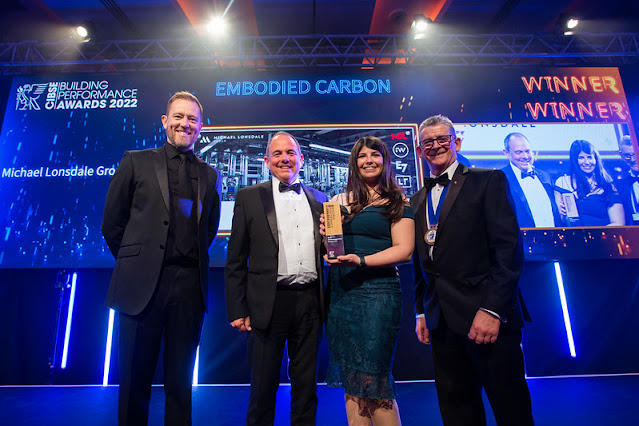How engineers can save civilisation
A video of the full lecture is now available on our YouTube Channel
Earlier this month I had the honour of speaking at the CIBSE Annual Lecture, a chance for people in the industry to get together and discuss ideas. My thesis that engineers can ‘save civilization’ seems like a bold one, but is that uneasy feeling because the claim really is grandiose, or is it a symptom of how we engineers often sell ourselves short?
Currently facing us is the biggest threat that this generation and the next will face, that of man-made climate change caused by greenhouse gas emissions, and (unless you’re Donald Trump) the world is pretty unanimous on our need to fight it. Every society on Earth is at risk from its effects, from richest to poorest on every continent, and the world could lose some of its great cities or even whole countries by the end of this century.
As engineers, we have the tools we need to save the world. Buildings services engineers, and engineers in general, are part of a huge and talented profession that focuses on solving problems, using old and new technology together to do the possible and the apparently impossible. When the Chinese wanted to dominate their vast and wild territory, their engineers built the Great Wall. When the Romans needed to expand their great cities, their engineers built aqueducts which stand to this day. When public health in London reached crisis levels, engineers built great sewers which still serve the capital. We now have the most advanced tools humans have ever had: supercomputers, advanced new materials, alternative power sources and more, created by the best scientific minds around today. Engineers have the skills to actually bring these ideas from prototype uses into the mainstream.
 |
| Engineers built the Tube to solve the societal problem of overcrowding ©Tom Page CC BY-SA 2.0 |
Engagement is not easy for many of us and we need to have the courage to advocate for what we know. We must ‘inhabit’ our roles as change agents and push for better performance in our industry and beyond. We cannot let ‘good enough’ be good enough in a world with a rapidly changing climate – we must be robust in our knowledge of sustainability issues and the ways in which we can address them. This might mean pushing for better energy performance even in the face of cost-cutting or collaborating to create better problem statements, defined by sustainable goals, for our design projects. Our value relies on our technical abilities and how we apply them so we must build our knowledge and experience.
Building knowledge and experience comes from a tight cycle of knowing and doing: our education is not over when we graduate, much of what we learn in later years will be from our peers and seniors. We must nurture our curiosity and then share what we know, finding colleagues and collaborators who will push us to better solutions. We should read broadly and participate in a wide range of activities: creativity often comes from the using ideas common in one field to solve problems in another, or from trying to see things from another point of view. A design problem might be solved through a teaching technique or the confidence to speak out might come from learning something new.
 |
| Gardens by the Bay in Singapore is a radical solution to an environmental concern |
With this knowledge and experience we can take our courage in both hands and start to take our proper place in society as citizens and contributors. We must be bold as we inhabit this role: pushing ourselves to lead, to communicate and mobilize. We need all the help we can get and all the skills we can muster to solve the greatest problem of our generation. It’s essential that we bring others along with us and welcome working with others. Together we can find ways to challenge governments on bad policies, other building professionals on unsustainable designs, and the media on poor sustainability reporting. A good engineer is technically competent, but a great engineer thinks how their role can benefit wider society. We need to know our stuff, do it well, and fully inhabit our roles if we are to make the world a better place.
 |
| Engineers discuss sustainability with MPs at a CIBSE event |
Engineers have the technical tools society needs to save itself from the threat of climate change. What they need now is the confidence to make it possible for them to do their work.
.png)


We are at the peak of social complexity. Probably the best quote to support a narrative and gain understanding of our predicament is "..."Eventually the point is reached when all the energy and resources available to a society are required just to maintain its existing level of complexity.”
ReplyDeleteWelcome to the era of diminishing returns, of limits and realisation of those limits. What matters now is our social understanding and cohesion.
If Fiona Cousins says engineering can save civilization that is huge vote of confidence that it can be done and we should follow her optimstic lead.
ReplyDeleteGreat article Fiona. We're currently discussing innovation in engineering in Ontario as part of an open-floor series of debates hosted by the IET; I've circulated this as essential reading before the next event. Thanks for the inspiration!
ReplyDelete